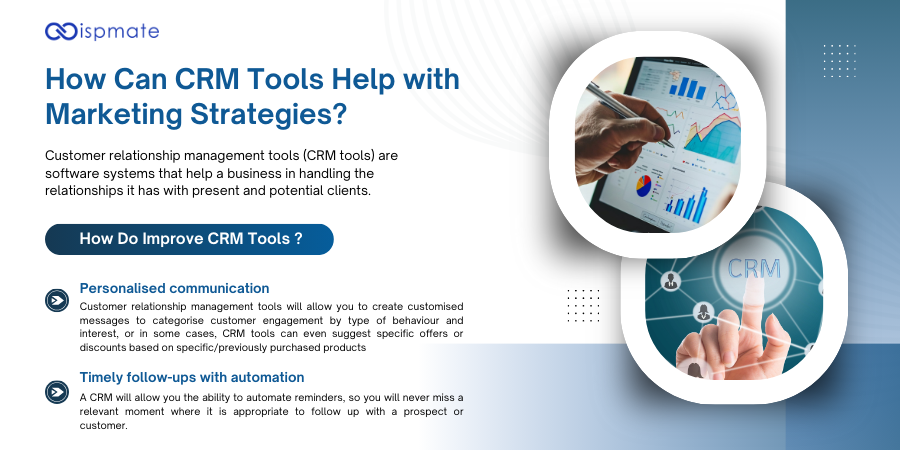Customer relationship management tools (CRM tools) are software systems that help a business in handling the relationships it has with present and potential clients. By combing through data, preventing the repetition of tasks, and implementing better strategies, these systems act as catalysts for business growth. CRM systems are today’s must-haves, from marketing applications and developing better customer relationships to preparing sales teams to perform better.
How Do CRM Tools Improve Customer Relationships?
CRM tools are the best way to enhance customer relationships by being able to better understand and therefore engage with customers and prospects alike with a proactive approach.
- Personalized communication: Customer relationship management tools will allow you to create customized messages to categorize customer engagement by type of behavior and interest, or in some cases, CRM tools can even suggest specific offers or discounts based on specific/previously purchased products.
- Timely follow-ups with automation: A CRM will allow you the ability to automate reminders, so you will never miss a relevant moment where it is appropriate to follow up with a prospect or customer.
- Customer behavior tracking: A CRM with software will track everything by tracking every sort of interaction that happens, so it will be documented to contribute to understanding their preferences or needs.
- Build long-term loyalty: By developing engaging touchpoints and strategically following up with appropriate offers and opportunities, your business can reactivate growth and enhance trust with customers, which will encourage them to continue coming back.
Mini example: A business that used a combination of CRM tools to reduce their customer response time by 40%, increased their customer satisfaction, and saw an increase in repeat business.
Which CRM Tools Are Best for Sales Teams?
Customer relationship management tools can help sales teams be more tracked and organized—hence saving them time and making more sales.
- Key features to look for: A CRM should integrate with email, offer strong lead tracking, mobile access, real-time updates, and strong reporting should almost be at the top of the list.
- Zoho CRM: Fantastic for small businesses; customizable workflows, with a very easy-to-use interface.
- Salesforce: Best for larger teams, it provides detailed reporting, strong analytics, artificial intelligence insights, and automation.
- HubSpot CRM: Known for its easy setup and free version, it’s great for early-stage/startup and growth companies.
- Benefits to sales teams: These tools surely improve pipeline visibility, decrease the time spent on manual data entry, and improve collaboration efficiently and effectively.
How Can CRM Tools Help with Marketing Strategies?
Customer relationship management tools give marketing the ability to engage with the right people, at the right time, with the right message.
- Audience segmentation: Easily segment your contacts by age, interests, or behavior to run much more focused and effective campaigns.
- Campaign automation: Automate emails, SMS, or follow-ups based on whether users interact with your brand in real time. It saves time and effort.
- Analytics & reporting: Understand which campaign is working and conversion rates, and provide information to make decisions.
- Digital integration: Cintegratesate social media, landing pages, and ads to ensure consistency in a message.
- Mini-use case: A company that was using CRM for email marketing had a 2x higher engagement compared to their previous manual method.
Conclusion
Customer relationship management tools provide an important function for a company’s marketing, customer service, and sales capabilities.
With customer relationship management, companies can better engage with one of their most important audiences. This leads to additional revenue.
So, start searching for a CRM solution today to enhance your engagement opportunities with your customers. The right CRM solution could completely shift the long-term, sustainable growth of a business.







